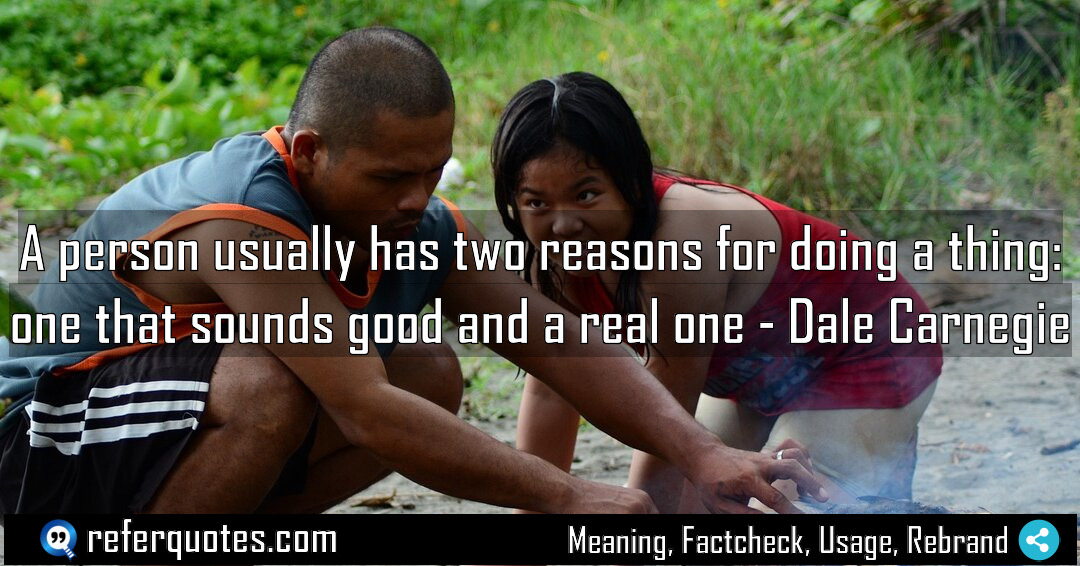A person usually has two reasons… one that sounds good, and the real one. It’s a concept that explains so much about human behavior, from office politics to personal relationships.
Share Image Quote:Table of Contents
Meaning
At its core, this quote is about the gap between our stated intentions and our true, often unspoken, motivations. It’s the difference between the “why” we tell the world and the “why” that actually drives us.
Explanation
Look, I’ve seen this play out a thousand times in boardrooms and in one-on-ones. The “good-sounding” reason is the socially acceptable one, the one that aligns with company values or makes us look generous. It’s the wrapper. But the real reason? That’s the engine. It’s usually about ego, fear, financial gain, or a deep-seated need for security or recognition. Once you start looking for this duality, you see it everywhere. A colleague argues for a new software platform because it’s “more efficient” (the good reason), but the real reason is they want to be the in-house expert on it. Someone pushes back on a project timeline citing “quality concerns,” but the real reason is they’re overwhelmed and need more breathing room. It’s not always malicious; it’s just… human.
Quote Summary
| Context | Attributes |
|---|---|
| Original Language | English (3668) |
| Category | Wisdom (385) |
| Topics | behavior (66), honesty (27), motivation (113), self awareness (56) |
| Literary Style | analytical (121), aphoristic (181) |
| Overall Quote Score | 74 (80) |
Origin & Factcheck
This gem comes straight from Dale Carnegie’s legendary 1936 book, How to Win Friends and Influence People, published in the United States. You’ll sometimes see it misattributed to others, like J.P. Morgan, but the source is definitively Carnegie. He was a master at observing what makes people tick.
Attribution Summary
| Context | Attributes |
|---|---|
| Author | Dale Carnegie (408) |
| Source Type | Book (4032) |
| Source/Book Name | How to Win Friends and Influence People (99) |
| Origin Timeperiod | Modern (527) |
| Original Language | English (3668) |
| Authenticity | Verified (4032) |
Author Bio
Dale Carnegie(1888), an American writer received worldwide recognition for his influential books on relationship, leadership, and public speaking. His books and courses focus on human relations, and self confidence as the foundation for success. Among his timeless classics, the Dale Carnegie book list includes How to Win Friends and Influence People is the most influential which inspires millions even today for professional growth.
Official Website |Facebook | X | Instagram | YouTube |
Where is this quotation located?
| Quotation | A person usually has two reasons for doing a thing: one that sounds good and a real one |
| Book Details | Publication Year/Date: 1936 original, Revised Edition 1981, ISBN/Unique Identifier: 9780671723651, Last edition. Number of pages: Revised Edition 1981, approx 291 pages |
| Where is it? | Part Three: How to Win People to Your Way of Thinking, Chapter 5 |
